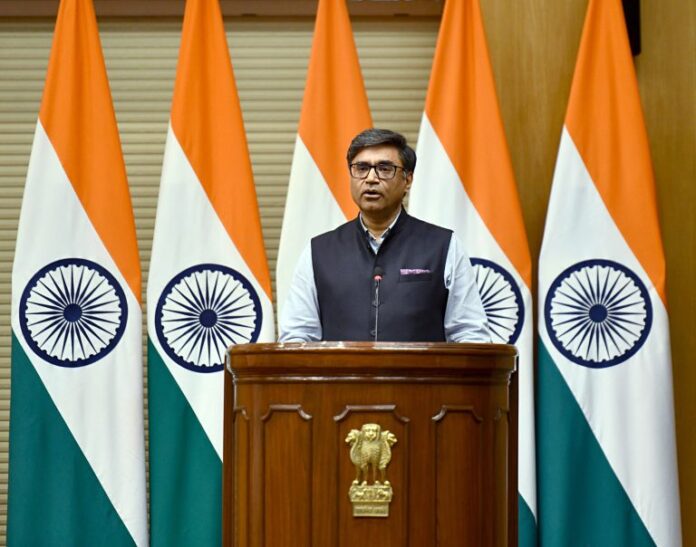New Delhi, May 11: India has reaffirmed its firm commitment to national security. The Armed Forces are maintaining strict vigil along all borders, particularly in Jammu and Kashmir, Rajasthan, and Punjab, following multiple ceasefire violations by Pakistan. The government has instructed forces to respond decisively to any further breaches along the Line of Control (LoC) and International Border (IB).
Foreign Secretary Vikram Misri, addressing a late-night media briefing, declared that India is taking a serious view of the violations. He stated that the Armed Forces are delivering an “adequate and appropriate response” to cross-border aggression and called on Pakistan to act responsibly to prevent further escalation.
The ceasefire violations occurred just hours after an understanding was reached between the Directors General of Military Operations (DGMOs) of both countries. The informal bilateral understanding, initiated at 1700 hours IST on May 10, 2025, aimed at de-escalating tensions. However, Pakistani forces allegedly breached this arrangement through cross-border firing and drone incursions, prompting calibrated retaliation from India.
Following these violations, official reports cited mortar shelling and small arms fire in Jammu and Kashmir. Explosions were heard in various parts of Srinagar, as confirmed by the state’s Chief Minister Omar Abdullah. Surveillance units also detected several drone sightings across the LoC, signaling potential reconnaissance or offensive intent. Indian forces responded by elevating tactical alert levels and initiating defensive measures to protect both civilian and military infrastructure.
In a retaliatory move, the Indian Armed Forces conducted precision strikes on eight identified Pakistani military positions. These actions were in response to attacks involving loitering munitions, UAVs, missiles, and fighter aircraft targeting Indian Air Force installations in Udhampur, Pathankot, Adampur, Bhuj, Srinagar, and Awantipora. The Ministry of External Affairs confirmed the use of long-range precision-guided weapons to neutralize these threats effectively.
Amid these developments, bilateral mechanisms such as the Indus Waters Treaty and the Kartarpur Corridor have been suspended. The government cited ongoing diplomatic and security concerns as the reason for these decisions.
Security experts note that the immediate resumption of hostilities following the ceasefire understanding underscores the persistent strategic mistrust and the evolving nature of conflict, especially with the integration of drone technology and high-precision weaponry along India’s western front.
The Government of India reiterated its resolve to uphold national sovereignty and declared that it will continue to monitor the situation with the highest level of vigilance.





